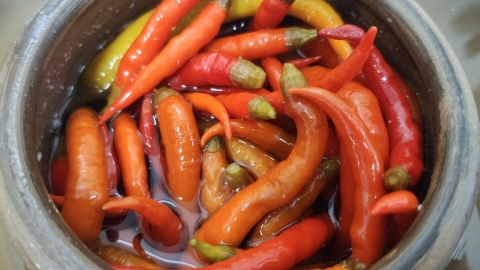What foods should patients with gallstones avoid eating?
Generally, to avoid stimulating gallbladder contraction and worsening their condition, patients with gallstones should avoid foods high in cholesterol, high-fat foods, spicy and irritating foods, alcoholic beverages, and overly sweet foods. The specific reasons are as follows:

1. High-cholesterol foods: Foods such as animal offal, crab roe, and fish eggs are extremely high in cholesterol. Consuming them stimulates the liver to secrete more bile, which may trigger strong gallbladder contractions, induce biliary colic, and increase irritation from gallstones.
2. High-fat foods: Foods rich in fat—such as fatty meats, fried foods, butter, and cream—require large amounts of bile for digestion. This can lead to excessive gallbladder contraction, potentially causing pain, and may promote the growth or formation of additional gallstones.
3. Spicy and irritating foods: Spicy items like chili peppers, Sichuan pepper, mustard, and curry can irritate the gastrointestinal tract and biliary mucosa, possibly causing biliary spasms, increasing discomfort in the gallbladder, and impairing bile excretion, which is detrimental to disease stability.
4. Alcoholic beverages: Alcohol-containing drinks such as white liquor, beer, and red wine can directly damage liver function, disrupt bile secretion and excretion, alter bile composition, and may stimulate gallbladder contraction, increasing the risk of biliary colic attacks.
5. Overly sweet foods: Excessive consumption of very sweet foods such as chocolate, candies, and sugary pastries can easily be converted into body fat, leading to increased fat accumulation, indirectly affecting bile metabolism, increasing the burden on the gallbladder, and hindering recovery.
In daily life, in addition to dietary control, gallstone patients should maintain regular meal times, avoid binge eating or prolonged fasting, and reduce opportunities for excessive gallbladder contraction. At the same time, they may engage in moderate physical activity such as walking or jogging to help maintain a healthy weight and support disease stability.






